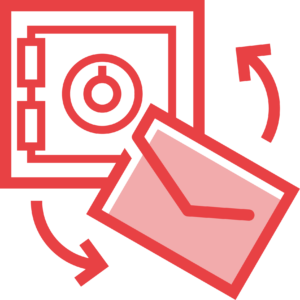
The Significance of Email Archiving Tools: Unlocking Efficiency and Compliance
Introduction:
In today’s digital age, email communication stands as the backbone of business operations, facilitating seamless interaction and data exchange. However, the overwhelming volume of emails poses challenges in managing, storing, and retrieving critical information efficiently. This is where email archiving tools like Mailbox and Veritas come into play, revolutionizing the way organizations handle their email data.

Understanding Email Archiving Tools:
Email archiving tools are dedicated solutions designed to systematically capture, index, store, and retrieve emails. They offer a centralized repository for managing email correspondence, ensuring easy access, searchability, and regulatory compliance.
The Value Proposition of Email Archiving Tools:
1. Enhanced Data Management:
- Email archiving tools streamline data management by organizing emails into a structured repository. This allows for quick access to historical emails, reducing storage complexities and improving search functionalities.
2. Improved Compliance and Legal Preparedness:
- Regulatory bodies often mandate the retention of business records, including emails, for compliance purposes. Archiving tools assist in adhering to regulations like GDPR, HIPAA, and SOX by securely storing and managing emails for the required retention periods.
3. Reduced Storage Costs:
- These tools optimize storage by archiving older or less frequently accessed emails, thereby reducing the load on primary storage systems. This helps in cutting down storage expenses and enhancing overall system performance.
4. Efficient eDiscovery and Retrieval:
- In legal proceedings or internal investigations, quick access to relevant emails is crucial. Email archiving tools provide advanced search capabilities, enabling rapid retrieval of specific emails, attachments, or conversations, aiding in eDiscovery processes.
5. Protection against Data Loss:
- Archiving tools act as a safeguard against accidental deletion, data corruption, or system failures. They create backups of emails, ensuring data integrity and mitigating the risk of losing critical information.
Use Cases of Email Archiving Tools:
1. Litigation and Legal Support:
- In legal disputes or audits, these tools offer comprehensive email retention and retrieval, aiding in compliance with legal obligations and providing evidence for litigation cases.
2. Regulatory Compliance:
- Industries such as healthcare and finance are bound by strict regulations. Email archiving ensures compliance with data retention policies and regulatory frameworks.
3. Knowledge Management and Research:
- Research-oriented institutions or knowledge-based businesses can benefit from the archival of past communications, facilitating historical references and preserving institutional knowledge.
4. Employee Productivity and Efficiency:
- By reducing mailbox clutter and allowing swift access to archived emails, these tools enhance productivity by enabling employees to focus on relevant information rather than sorting through an overloaded inbox.
5. Business Continuity and Disaster Recovery:
- Archiving tools serve as a part of the disaster recovery plan, ensuring continuity by preserving critical communication in case of unexpected events or system failures.
In conclusion, email archiving tools like Mailbox and Veritas offer multifaceted benefits, ranging from efficient data management, compliance adherence, enhanced productivity, to seamless eDiscovery. Investing in such tools not only optimizes email storage but also fortifies data security and regulatory compliance, empowering organizations to harness the full potential of their email communications.
